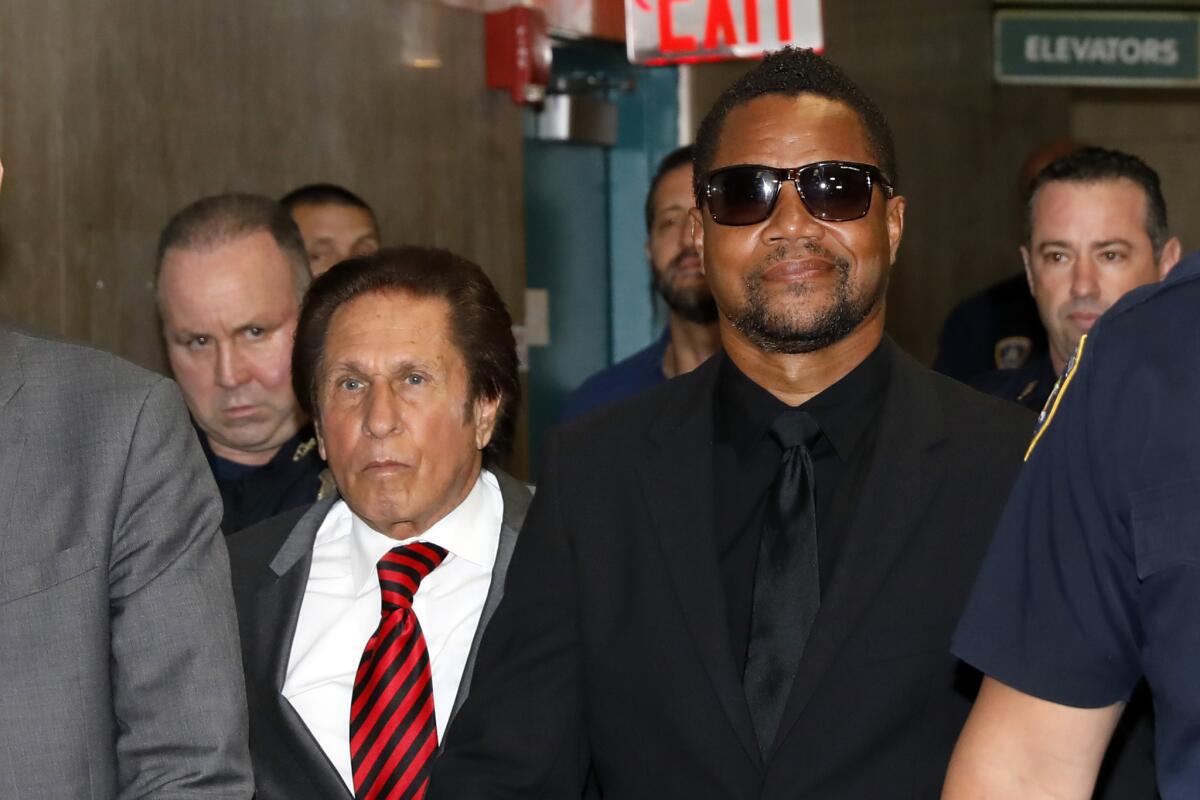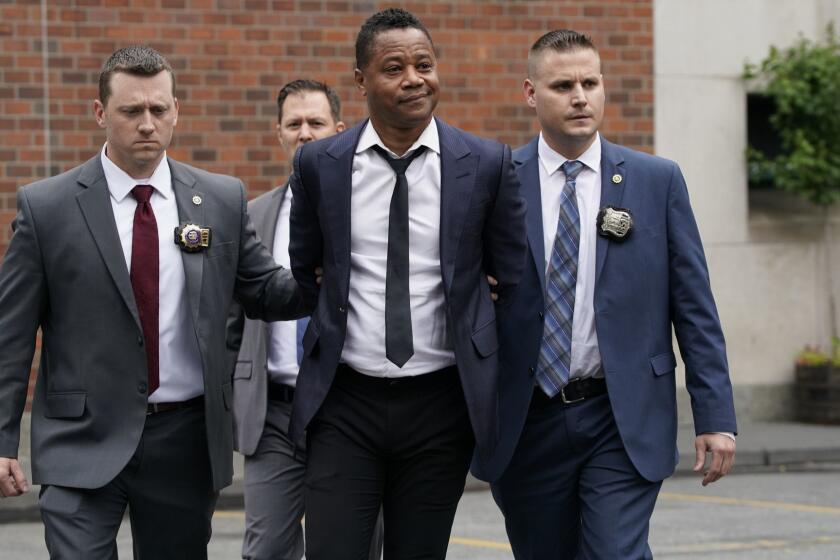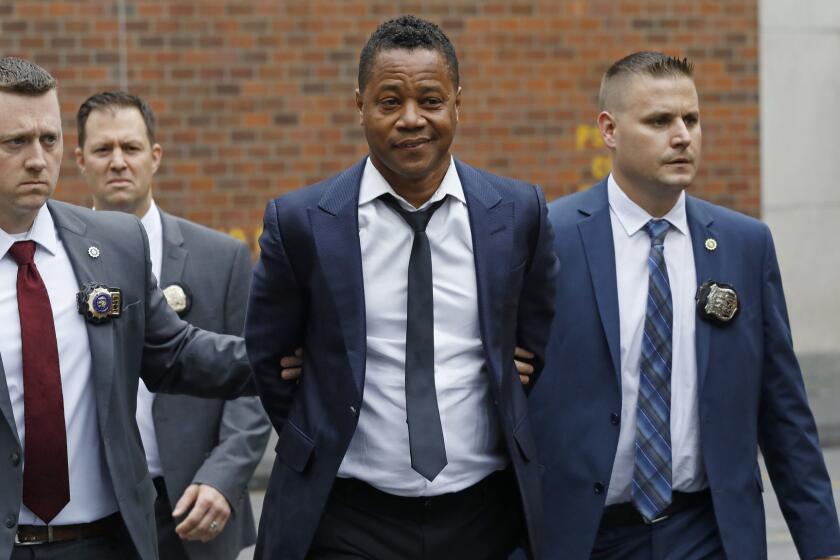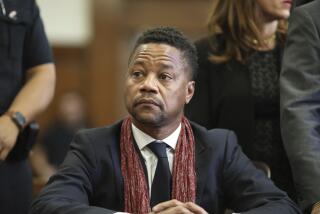Judge allows Cuba Gooding Jr. groping case to go forward

- Share via
NEW YORK — A New York City judge rejected actor Cuba Gooding Jr.’s request to have his groping case thrown out.
Judge Phyllis Chu said in a written ruling this week that conflicting accounts of the accusations against the Oscar-winning “Jerry Maguire” star should be resolved at a trial starting Sept. 3.
An attorney for Gooding, Mark Heller, said in a statement Thursday that he still expects his client to be exonerated.
Oscar winner Cuba Gooding Jr. surrendered to New York authorities on Thursday following allegations that he groped a woman at a Manhattan nightclub over the weekend, according to the New York Police Dept.
A criminal complaint filed by prosecutors in Manhattan has accused Gooding of placing his hand on a 29-year-old woman’s breast and squeezing it without her consent at Magic Hour Rooftop Bar & Lounge near Times Square on June 9. The woman told police she believed Gooding was intoxicated.
The 51-year-old Gooding was arrested four days later after turning himself in to police. He pleaded not guilty to forcible touching and sexual abuse charges and was released on his own recognizance after about six hours in police custody.
An attorney for Cuba Gooding Jr. is refuting conclusions some have drawn from a surveillance video showing the actor touching a woman who has accused him of groping her.
The defense had filed papers saying the misdemeanor forcible touching case should be dismissed based on accounts of two witnesses who say it never happened, and that video from the bar backs up that claim. The papers argued that since there was clear evidence that no crime was committed, it was necessary to throw out the case to protect the integrity of the criminal justice system.
The judge wrote: “This court disagrees. The conflicting factual allegations between the criminal court information and the defendant’s motion should be resolved at trial.”
More to Read
The biggest entertainment stories
Get our big stories about Hollywood, film, television, music, arts, culture and more right in your inbox as soon as they publish.
You may occasionally receive promotional content from the Los Angeles Times.












